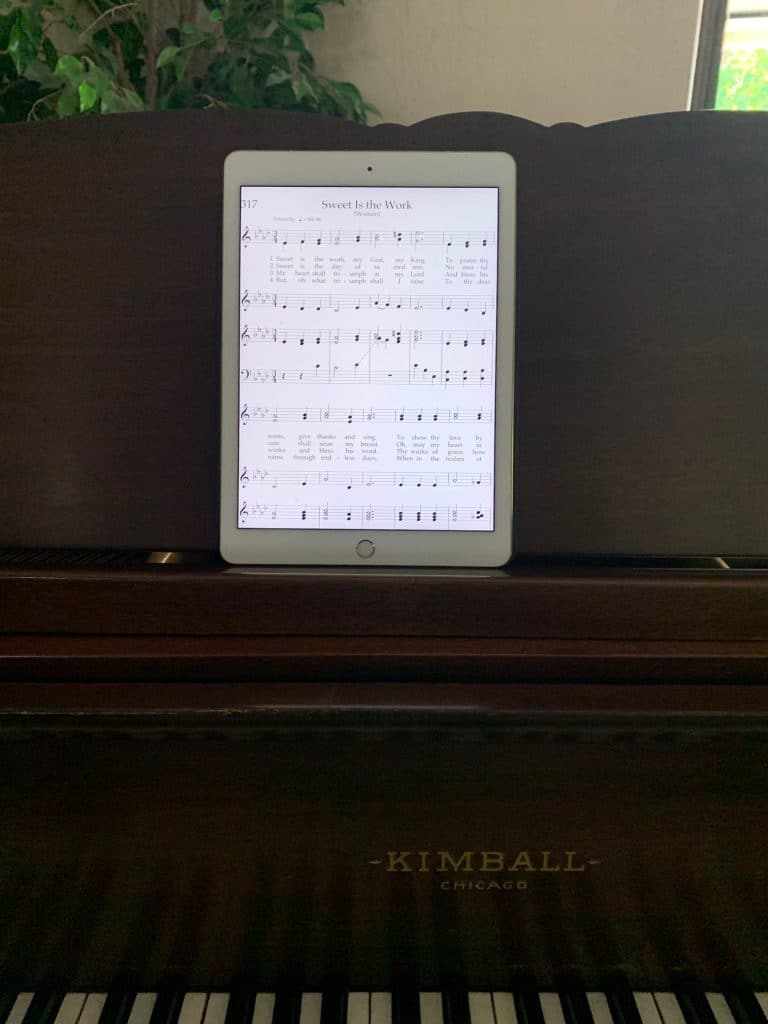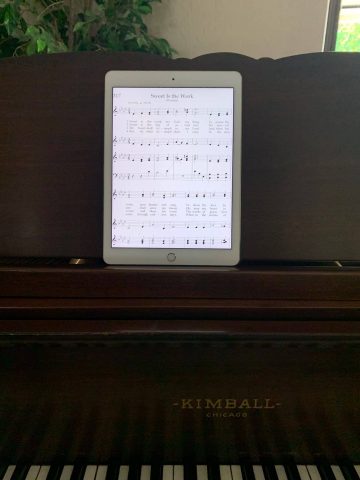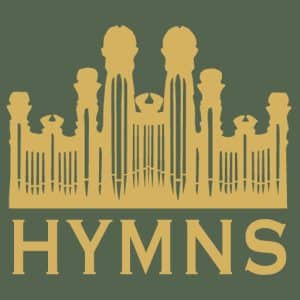Part 2: Culture
Note: This post is the second of a three-part series examining problematic lyrics as part of the Church’s hymnal revision.
Part 1: Theology and Practices
Part 2: Culture
Part 3: Gender
Culturally-Offensive or Exclusive Language
Issues: These lyrics imply that LDS people (“Saints”), Christians, and European settlers have special claim on God’s favor and blessing.
Recommendation: Revise for inclusive lyrics or else omit.
#3 Now Let Us Rejoice (“when all that was promised the Saints will be given” and “we’ll rise with the just”)
Do LDS people merit special promises and blessings—even at the expense of others? Are we inherently “just”?
#21 Come, Listen to a Prophet’s Voice (“all are accursed who Jesus Christ deny”)
Are Muslims, Jews, Hindus, agnostics, atheists, and others “accursed”?
#37 The Wintry Day (“where roamed at will the fearless Indian band”)
Would Native Americans celebrate the transformation of the Salt Lake Valley from a “wilderness” where their ancestors “roamed at will” into a “fertile, fruitful field” where they were viewed as interlopers and ultimately displaced?
#70 Sing Praise to Him (“He leads his own, his chosen band”)
Does God have favorites?
#91 Father, Thy Children to Thee Now Raise (“glad that we’ve chosen the better part”)
Might others have a different view of “the better part” and find this view self-serving?
#262 Go, Ye Messengers of Glory (“gather all the sheaves of worth”)
Are some sheaves (people) not of worth to God?
Nations in Darkness
Issues: Would people from other nations, cultures, or faiths appreciate these lyrics? If they were applied to Christians, United States citizens, or the LDS people specifically, would we?
Recommendation: Revise for inclusive lyrics or else omit.
#42 Hail to the Brightness of Zion’s Glad Morning (“lands that in darkness have lain”)
#253 Like Ten Thousand Legions Marching (“Come, ye nations, out of darkness”)
#267 How Wondrous and Great (“to nations long dark thy light shall be shown” and “till earth’s every people confess thee their God”)
#268 Come, All Whose Souls are Lighted (“call us to deliver their land from error’s chain”)
Jews and Gentiles
Issues: In the New Testament world, “the Gentile and the Jew” signified the major religions of the region and served as shorthand for all people. In our day, this phrasing excludes most of the world’s population.
Recommendation: In our era of resurgent anti-Semitism, singling out Jews is particularly inappropriate. Revise for more general lyrics or else omit.
#25 Now We’ll Sing with One Accord (“with its covenant ever new for the Gentile and the Jew”)
#42 Hail to the Brightness of Zion’s Glad Morning! (“Gentiles and Jews the glad vision behold”) Would Jewish people appreciate the idea that they would behold a “glad” vision of Christianity?
#262 Go, Ye Messengers of Glory (“Jew and Gentile greet the sound”)
Divisive or Vindictive Language
Issue: These lyrics seem to advocate conflict and revenge.
Recommendation: Revise for language that celebrates peace—or at least refrains from identifying enemies and anticipating their demise.
#19 We Thank Thee, O God, for a Prophet (“the wicked who fight against Zion will surely be smitten at last” and “they who reject this glad message shall never such happiness know”)
Are people with different opinions or beliefs inherently “wicked”? Are all LDS people happy? Are all others unhappy? If these lyrics are aspirational, do they set false expectations?
#27 Praise to the Man (“long shall his blood, which was shed by assassins, plead unto heaven” and “earth must atone for the blood of that man”)
Do we advocate revenge?
#41 Let Zion in Her Beauty Rise (“His enemies subdue”)
Does God have enemies on earth?
#248 Up, Awake, Ye Defenders of Zion (“the foe’s at the door of your homes,” “remember the trials of Missouri,” and “we’ll not rest till our foes are retreating”)
Are we combatants?
War Analogies
Issues: We definitely need hymns with vigorous melodies and rhythms. However, war hymns typically use rousing music to motivate sometimes-violent action and to suggest that God is always on “our” side. These hymns are a call to arms for crusades against enemies. Do these martial lyrics reflect Christlike values? Do they welcome and include visitors?
Recommendations: Congregations—including Primary children—love to sing rousing hymns with strong beats. For a few favorites, perhaps the new hymnal could include a small section for historical or heritage hymns. For others, retain the melodies (if copyright allows) with softer lyrics or new verses. Add new hymns that celebrate peace such as This is my Song (beautiful lyrics set to the familiar Finlandia melody) or Down by the Riverside, a rousing African-American spiritual. Additionally, promote verse 5 of Sweet is the Work (“my inward foes shall all be slain, nor Satan break my peace again”) to the staff where it would be sung more often. Our most urgent foes are often internal.
Additionally, hymns of joy and gladness tend to have vigorous melodies. Include more such as Joyful, Joyful We Adore Thee and Morning Has Broken.
Battle Hymn of the Republic (#60) has historical significance in the United States—and as a signature piece for the Mormon Tabernacle Choir. I recommend retaining it as is, perhaps in a historical or heritage section.
For All the Saints (#82) is one of very few hymns with more complex harmonies. I recommend retaining it.
#60 Battle Hymn of the Republic (“he hath loosed the fateful lightning of his terrible, swift sword”)#76 God of Our Fathers, We Come unto Thee (“onward we’ll press till life’s battle we’ll win”)
#80 God of our Fathers, Known of Old (“Lord of our far-flung battle line, beneath whose awful hand we hold dominion”)
#82 For All the Saints (“oh, may thy soldiers, faithful, true and bold,” “Thou, Lord, our captain in the well-fought fight”)
#225 We Are Marching on to Glory (“we will make our armor brighter and never lay it down”)
#243 Let Us All Press On (“in the fight for right let us wield a sword”)
#246 Onward Christian Soldiers (“onward, Christian soldiers! marching as to war, with the cross of Jesus going on before”)
#248 Up, Awake, Ye Defenders of Zion (“awake, ye defenders of Zion! the foe’s at the door of your homes,” “when the enemy host is before you, stand firm and be faithful and true”)
#250 We Are All Enlisted (“we are all enlisted till the conflict is o’er,” “soldiers in the army, there’s a bright crown in store; we shall win and wear it”)
#251 Behold! A Royal Army (“a royal army, with banner, sword, and shield, is marching forth to conquer on life’s great battlefield”)
#254 True to the Faith (“while the enemy assaileth, shall we shrink or shun the fight?”)
#258 O Thou Rock of Our Salvation (“we’re contending for the right,” “help us, Lord, to win the fight”)
#259 Hope of Israel (“Zion’s army,” “see the foe in countless numbers,” “now the vict’ry we must win”)
#260 Who’s on the Lord’s Side? (“we wage no common war, cope with no common foe,” “the enemy’s awake”)
Geographical Bias
Issues: These hymns reflect the significance in Church history of specific regions including Missouri (purported site of Adam-ondi-Ahman, the Garden of Eden); Nauvoo, Illinois; and the mountains and deserts of Utah. These lyrics are less meaningful—and sometimes perplexing—outside of Church historical areas or strongholds.
Recommendation: To honor the past as we look to the future, perhaps include a small section for favorite historical or heritage hymns.
#33 Our Mountain Home So Dear (title)
#34 O Ye Mountains High (title)
#35 For the Strength of the Hills (“the touch of the mountain sod,” “the mountain bulwark stands”)
#42 Hail to the Brightness of Zion’s Glad Morning! (“in the desert the flowers are springing,” “loud from the mountaintops echoes are ringing”)
#49 Adam-ondi-Ahman (“this earth was once a garden place,” “saints and angels sang aloud, in Adam-ondi-Ahman”)
#248 Up, Awake, Ye Defenders of Zion (“remember the trials of Missouri; forget not the trials of Nauvoo”)
#255 Carry On (“firm as the mountains around us,” “over the desert sod,” “the desert singing”)
Continued: The next post examines gender in LDS hymn lyrics.
danahc is a chamber choir singer, professor, and ward music chair in Indiana.




![Guest Post: The Hymnal Revision, Part 2 -- Gently [, Accurately, and Kindly] Raise the Sacred Strain[s] Hymns Part 2 1 e1549207866893 Guest Post: The Hymnal Revision, Part 2 -- Gently [, Accurately, and Kindly] Raise the Sacred Strain[s]](https://exponentii.org/wp-content/uploads/2019/02/Hymns-Part-2-1-e1549207866893-225x300.jpg)


4 Responses
Such great points, danahc. This is a masterful list of hymns that do indeed need to be reworked/dropped.
I love the suggestion of Morning Has Broken. One of my favorites.
Great suggestions! I especially love all the many ways you’ve pointed out that we’re overenthusiastic in drawing boundaries between Us and Them in our hymns.
I’ve stopped singing battle-themed hymns. I find the language irreverent and I feel bad singing them.
The War Analogy hymns you cite seem to be very popular in my experience. Any that are quotes from scripture or are obviously symbolic of spiritual struggles should be fine. I expect these to be retained at a higher rate than average.
The hymns with historical references to places and events are also perfectly fine. Should we throw out references to the exodus in the desert also?
Now singing about out current mountain home I found especially humorous when we could see buildings over 30 miles away over the flat prairie on our way home from church when I was younger.